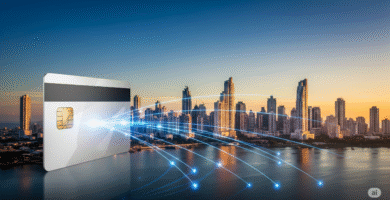
Finance in Panama: What Every Expat Needs to Know
When moving to Panama, understanding the country’s financial landscape is key to making the most out of your new life abroad. Unlike many Latin American countries, Panama’s economy is remarkably stable, and this stability is largely tied to its use of the US dollar. Interestingly, locals call it the balboa, yet paper currency is entirely US dollars, while coins under one dollar carry Panamanian designs. Most coins feature Vasco Núñez de Balboa, the Spanish explorer who first crossed the Isthmus of Panama, while the humble 1 cent coin displays the face of Urracá, a native chief who bravely resisted Spanish conquest.
This dollarized economy ensures price stability and reduces the risks associated with currency fluctuations—one of the biggest advantages for expats and retirees living off fixed incomes. It also makes international transactions more straightforward, eliminating the headaches of exchange rates.
Panama’s financial environment is not only stable but also internationally connected. With its strategic location and its status as a global hub, the country has attracted banks, corporations, and investors from around the world. For expats, this translates into access to robust banking services, investment opportunities, and an economy that encourages international business.
Throughout my time living here, I’ve noticed that while Panama offers these advantages, success—especially in business—requires a deep understanding of its unique dynamics. Many newcomers underestimate this, leading to avoidable mistakes.

Work Permits in Panama: 2026 Expat Guide

Panama New Government Policies 2026: What Expats Need to Know
Why Panama is a Top Choice for Investors and Retirees
Panama has long been a magnet for foreign investors and retirees seeking financial security combined with a tropical lifestyle. The country offers various incentives for foreigners, including tax benefits and special visas like the Pensionado Program, which provides retirees with discounts on healthcare, travel, and entertainment.
Foreign investment is encouraged through friendly policies, and the absence of currency restrictions makes it easy to transfer money in and out of the country. Real estate is another attractive sector, with expats often purchasing property both as investments and residences.
From my own experience, Panama’s small population is a double-edged sword. While it creates a relaxed environment and a sense of community, it also means that businesses dependent on large-scale consumer markets face difficulties. Locals tend to purchase from well-established brands, leaving little room for mass-market newcomers. For this reason, I always advise expats: avoid starting a business that relies heavily on local mass sales. Instead, focus on niche services or consider building a digital business that serves clients outside Panama while benefiting from living here.
Panama’s Banking System: Stability Backed by the US Dollar
Panama’s banking system is one of the most sophisticated in Latin America. With over 60 banks operating in the country, including international institutions, it offers a wide range of financial services to individuals and corporations alike. The system is well-regulated by the Superintendence of Banks (Superintendencia de Bancos de Panamá), which ensures compliance and protects depositors.
The use of the US dollar not only boosts confidence but also attracts international investors who value a stable currency. However, expats should be aware that opening a bank account can be a bureaucratic process, requiring documentation to prove income, residence, and source of funds. Regulations against money laundering are strict, so patience is required when dealing with Panamanian banks.
For retirees and digital nomads, the banking system supports daily needs, but when it comes to payment gateways, things get tricky. Many of Panama’s payment processors are either expensive or limited to domestic transactions. This is where my personal experience comes in: for freelancers or online entrepreneurs, it’s often more efficient to set up a US-based company. Doing so allows access to international payment gateways with lower fees compared to those offered locally.

Best Ways to Transfer Money to Panama for Expats

How to Open a Bank Account in Panama: Step-by-Step Guide
Common Financial Challenges for Foreign Entrepreneurs
Starting a business in Panama can be rewarding, but it comes with challenges that many expats overlook. The small population limits market size, making mass product sales difficult. Moreover, brand loyalty is strong—locals tend to favor well-known companies over new entrants.
Additionally, although Panama is business-friendly in terms of taxation, navigating permits, licenses, and compliance can be time-consuming. It’s not uncommon to encounter bureaucratic delays, so proper planning is essential.
In my experience, the most successful expat entrepreneurs are those who offer specialized services—things that are either lacking locally or targeted at other expats. Another strategy is to base your operations in Panama while serving international markets through online platforms. This way, you benefit from living in Panama without depending on its small local market.
Digital Business Opportunities: Running an Online Venture from Panama
Panama’s combination of modern infrastructure, stable economy, and attractive lifestyle makes it an appealing base for digital entrepreneurs. High-speed internet is widely available in urban areas, and the country’s connectivity—both physically, via its international airport, and digitally—makes it easy to manage businesses remotely.
For freelancers and online business owners, my strongest advice is to leverage Panama’s advantages while avoiding its limitations. Local payment gateways tend to be expensive, have high commission rates, or fail to deliver what they promise. By incorporating a company in the United States, you gain access to global payment processors like Stripe, Square, and Adyen, enabling seamless international transactions.
Living in Panama while running a business that serves clients worldwide is not only possible but highly efficient. The low tax burden on foreign-sourced income and the ease of managing remote operations create a winning formula for digital nomads.
Regulations and Sustainability in Panama’s Financial Landscape
Panama’s financial sector has undergone significant reforms to strengthen transparency and align with international standards. The Superintendence of Banks continuously updates regulations to maintain investor confidence. Recently, initiatives promoting financial sustainability have gained traction, including the development of a taxonomy for sustainable finance aimed at aligning investments with environmental and social goals.
For expats, this means operating in a market that is increasingly compliant with international practices—an important consideration for anyone investing or managing assets here.
Cost of Living and Financial Lifestyle in Panama
One of the greatest appeals of Panama is its quality of life. Despite being more expensive than some neighboring countries, it remains affordable compared to North America or Europe. You can enjoy modern amenities, access to international brands, and a comfortable lifestyle at a fraction of the cost you would pay in the US.
Living here also means quick access to beaches, mountains, and nature, all within a few hours’ drive. This balance between modernity and natural beauty is why many expats, retirees, and digital nomads choose Panama.
Final Thoughts: Navigating Panama’s Finance Scene Successfully
Panama offers a unique mix of stability, opportunity, and lifestyle benefits. Its dollarized economy ensures price stability, its banking system is robust, and it continues to attract global investors. However, success in Panama—whether as an entrepreneur, retiree, or digital nomad—requires understanding its limitations, particularly its small local market and costly payment systems.
From my personal experience, those who thrive here are the ones who combine Panama’s lifestyle advantages with smart financial strategies, such as running international businesses while enjoying the benefits of living in this vibrant country.
5 Frequently Asked Questions (FAQs)
1. Can foreigners open a bank account in Panama?
Yes, but the process can be lengthy due to strict anti-money laundering regulations. You’ll need proof of income, residence, and source of funds.
2. Is Panama a tax haven?
Panama operates under a territorial tax system, meaning foreign-sourced income is not taxed. However, local income is subject to taxation.
3. Are there good investment opportunities in Panama?
Yes, particularly in real estate, logistics, and financial services. However, thorough research and local advice are essential.
4. Is it easy to start a business in Panama?
While the process is relatively straightforward, expect bureaucratic delays. Specialized services or online ventures often fare better than mass-market businesses.
5. How expensive is life in Panama?
It varies by location. Panama City is more expensive than rural areas, but overall, the cost of living is lower than in the US or Europe while offering a high quality of life.

